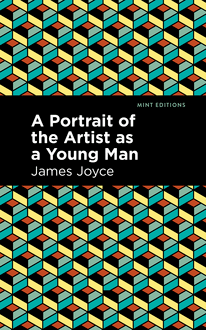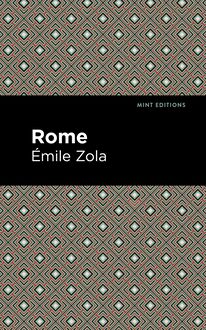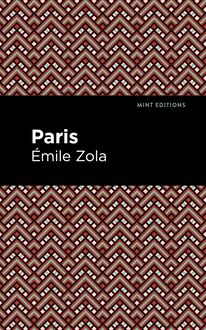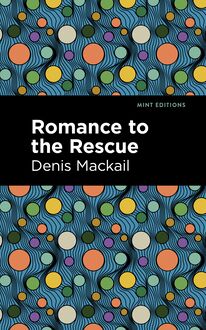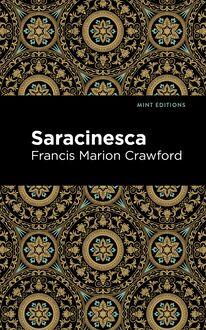-
 Univers
Univers
-
 Ebooks
Ebooks
-
 Livres audio
Livres audio
-
 Presse
Presse
-
 Podcasts
Podcasts
-
 BD
BD
-
 Documents
Documents
-
- Cours
- Révisions
- Ressources pédagogiques
- Sciences de l’éducation
- Manuels scolaires
- Langues
- Travaux de classe
- Annales de BEP
- Etudes supérieures
- Maternelle et primaire
- Fiches de lecture
- Orientation scolaire
- Méthodologie
- Corrigés de devoir
- Annales d’examens et concours
- Annales du bac
- Annales du brevet
- Rapports de stage
La lecture à portée de main
Vous pourrez modifier la taille du texte de cet ouvrage
Découvre YouScribe en t'inscrivant gratuitement
Je m'inscrisDécouvre YouScribe en t'inscrivant gratuitement
Je m'inscrisEn savoir plus
Vous pourrez modifier la taille du texte de cet ouvrage
En savoir plus

Description
The Clemenceau Case (1866) is a novel by Alexandre Dumas fils. Partly inspired by his own life, the novel takes the form of a letter written from prison to a powerful judge. Looking back on his experiences as an illegitimate child, Pierre Clemenceau provides a scathing critique of French society for its treatment of women and children. Born out of wedlock, Pierre Clemenceau is raised by a mother who tells him he has no father. Clemenceau is educated at a local school until the age of ten, at which point he is sent to a prominent boarding school for boys. There, he struggles to make friends and suffers bullying at the hands of a young American. Tortured day and night, Pierre grows distrustful and violent, and soon turns to a life of crime. As he relates the story of his life to a powerful judge, he declares himself innocent due to the circumstance surrounding his birth, and maintains the following: “My true crime…for which earthly justice will not pursue me, but for which I will never pardon myself nor those who impelled me to, is that I have doubted, and sometimes blushed for my mother.” Filled with regret, he looks for answers from the society that made him doubt his mother in the first place, a society which allows men to escape the responsibilities of fatherhood with impunity. With a beautifully designed cover and professionally typeset manuscript, this edition of Alexandre Dumas fils’ The Clemenceau Case is a classic of French literature reimagined for modern readers.
Sujets
Informations
| Publié par | Mint Editions |
| Date de parution | 03 août 2021 |
| Nombre de lectures | 0 |
| EAN13 | 9781513294179 |
| Langue | English |
| Poids de l'ouvrage | 2 Mo |
Informations légales : prix de location à la page 0,0450€. Cette information est donnée uniquement à titre indicatif conformément à la législation en vigueur.
Extrait
The Clemenceau Case
Alexandre Dumas, fils
The Clemenceau Case was first published in 1866.
This edition published by Mint Editions 2021.
ISBN 9781513291321 | E-ISBN 9781513294179
Published by Mint Editions®
minteditionbooks.com
Publishing Director: Jennifer Newens
Design & Production: Rachel Lopez Metzger
Project Manager: Micaela Clark
Translator: William Fléron
Typesetting: Westchester Publishing Services
T O M. R OLLINET , Counselor-at-Law
At the first news of my arrest, and without inquiring how much truth there was in the contradictory rumors circulated concerning me, you remembered our friendly relations, and persuaded me to live as long as possible for the sake of my child and my honor. I therefore now begin, not merely an account of the facts, the knowledge of which is indispensable to the counsel, who is willing to conduct my case, but also a confidential, exact, inexorable recital of the events, the circumstances, the thoughts which led up to the catastrophe of last month.
As the trial will come off no sooner than in five or six weeks, I shall have time to reflect. I will tell you the truth, as I would tell it to God, were he to question me, wishing to make my fate depend upon the sincerity of my confession. From this account you will take everything you may deem needful for my defence. I will give it as much continuity and clearness, as the state of my mind, less troubled than I should have expected, will allow. Your talent and friendship will do the rest.
Whatever the verdict of the jury may be, I shall never forget how you greeted me with open arms, when the door of my prison was opened to you; and my last thought, whether I be condemned or not, will be divided between my son and you.
P IERRE C LEMENCEAU
May 8th, 188—
C ONTENTS I II III IV V VI VII VIII IX X XI XII XIII XIV XV XVI XVII XVIII XIX XX XXI XXII XXIII XXIV XXV XXVI XXVII XXVIII XXIX XXX XXXI XXXII XXXIII XXXIV
I
I am of a family which is more than obscure. The words “my family” require explanation. My family was my mother. From her I received everything I have, my birth, my education, my name; for even now I do not know my father. If he is still alive, he will, like everybody else, have read in the daily papers the account of my arrest, and rejoice that he did not recognize a child who would one day have dragged his name into the criminal courts.
Very well. Up to the age of ten, I went pretty regularly to a little day school kept by an old man, on the ground floor of the house adjoining ours. There I learned reading, writing, and a little arithmetic, sacred history, and catechism.
When I had reached that age, my mother, sacrificing her own present happiness to my future good, placed me in a boarding school. It was hard for her to part with me; but, after commending me particularly to the care of the principal, telling him over and over again that he was to be gentle with me as I had never been away from her, she left me in his charge.
I pass over the disputes, the fights, and thousand and one petty annoyances to which a new boy is subjected in a boarding school, especially if that boy happens to be poor, and all the others rich, as in my case. My troubles were increased greatly because of the knowledge the others had of my being an illegitimate child. My mother had already warned me that that fact would cause me to be despised and insulted by many. I found, however, some compensation in the kindness of the teacher, who took special interest in my progress.
One day, when my school-mates were particularly exasperating, calling me “the bastard of Orleans,” one of them, Constantin Ritz, interfered in my behalf.
In consequence of this incident, a warm friendship sprang up between Constantin and myself, which, among other things, led to my being invited to his home for the vacations.
Constantin’s father, Thomas Ritz, had in his younger days shown great talent as a sculptor, and produced a fine statue which is now at the Luxemburg. From that effort he had gained great renown. But a rich young lady fell in love with him at the beginning of his career, and became his wife. Perhaps, by bringing too much comfort into their home, she had frightened away inspiration.
Thomas Ritz would have liked very much to see his son take to sculpture, for he felt himself capable of directing and instructing him in the great principles of art, in fact making him a true artist. Unfortunately, Constantin had no taste either for sculpture, music, or painting; he was, therefore, far from being of the same mind as his father, who, however, did not force his inclination, but allowed him to prepare for the military school of Saint Cyr.
One Sunday, M. Ritz, now a widower with but two children, Constantin and a daughter about sixteen years old, took me into his studio, where I saw so many plaster casts, marble, and bronze statues in all sorts of attitudes, solemn, affected, dramatic, that it fairly took my breath away. M. Ritz asked me which of all these statues I preferred, and when I pointed to a certain bronze figure, he told me I had shown great taste, for that was a copy of one of the finest works of antiquity— the Wrestler. “And,” added he, smiling, “you are quite right, it is better than the others—which are my own.”
I became at once a favorite with the old artist. That same evening, he asked me whether I had any ambition to become a sculptor, and proposed to have me remain at his house, where I should be treated as one of his own children.
I was now fourteen years old, and the resources of my mother had become inadequate to the strain of keeping me at school. Having had an opportunity to speak to her during the day, I told M. Ritz I should like it very much. Two days after, he and my mother decided that at the summer vacation I should leave school and take up my abode with him, which I accordingly did.
My progress was rapid; I loved work; I was indefatigable, rising early, staying up late, visiting museums and art galleries. I was ambitious; I wanted to leave something to posterity.
My mother was delighted; M. Ritz was proud of me. He showed my work to his artist friends. From them I received encouragement, counsel, sincere compliments.
I had, however, done nothing as yet but copy antique statues or follow my own fancy.
One evening, while his daughter was playing the piano, M. Ritz addressed me suddenly:
“Tomorrow you shall mould from nature. I am anxious to see what sort of a hand you will make at it. Prepare your clay the first thing in the morning. The model will arrive early.”
“What model?” I asked with a palpitating heart caused by this important news; “man or woman?”
“A woman.”
“Standing up or lying down?”
“Standing up.”
My heart was literally bounding. I slept but little that night. The next morning by seven o’clock I was mixing my clay. M. Ritz entered.
“Are you in good form?” said he.
“Yes,” I replied with assurance.
“Then let us breakfast.’
II
Exactly as the clock struck nine, there came a gentle knock at the studio door.
It was the model.
She was a person of from twenty to twenty-two years of age, in a dress of blue merino, quite short, and a straw hat trimmed with violet ribbons. A neat little collar, black and gray turban, plaid shawl, laced shoes, and silk gloves, much worn at the finger tips, completed her costume, which did not surprise me in the least, as I hardly supposed that a model at six francs a sitting, would be clad in velvet and lace; and besides, I had always been accustomed to see women plainly dressed among my mother’s assistants, as well as my mother herself. The impression her dress gave me, was respect for the wearer, but it looked so plain upon the person of Mariette, that I asked myself by what miracle a Venus could come out of it.
There was nothing remarkable about her head, the eyes were soft, the hair auburn, the complexion ruddy, the teeth well enough, the nose flat, nothing fine about the profile, and her voice was pleasant. I need not tell you that M. Ritz treated his models with the greatest gentleness, and with perfect politeness.
“You have a cold, my dear child,” he said to the young woman, as she coughed a little.
“It is nothing. I caught cold at M. P’s. He is always too warm, and let the fire go out. Being dressed, he did not notice it.”
“What is he doing now?”
“I don’t know.”
“Did you not look?”
“No, he does not like to have any one look at his pictures; all I know is, that I am posing on my knees with my arms lifted, and with an expression of terror. Perhaps it is another ‘Lion de Florence.’ ”
I could hardly refrain from laughing.
“Well, never mind,” said M. Ritz, “today you won’t have to hold up your arms.”
“It’s all the same to me, it’s so nice and warm here.”
“Very well, let us begin.”
Mlle. Mariette moved away from the stove, near which she had stood since she came in. I tried to assume a careless attitude, but I was very nervous within.
Taking off her shawl and hat, she stepped upon the platform, saying to M. Ritz:
“Everything?”
“Yes.”
In the most simple manner in the world, as if it were a perfectly natural thing to do, the girl unhooked her waist, unbuttoned her cuffs, slipped off her dress and, picking it up, placed it on a chair; removing the collar, she carefully laid it aside, and untying the skirt, stood clad only in a chemise, as she wore no corset. She sat down, throwing the right leg over the left, and unlaced her gaiters in a similar pose to that which Pradier has given one of his most beautiful statuettes; then she drew off her stockings, and dropping her chemise, pushed it aside with her bare foot, and rising, threw her head back, lifting with both hands the hair which rested on her shoulder.
“How am I to pose?” she asked. I turned toward M. Ritz, as much to regain my composure, as to get his idea. Stretched upon the sofa, he had not taken his eyes from me for several minutes. “Choose your pose,” he said to m
-
 Univers
Univers
-
 Ebooks
Ebooks
-
 Livres audio
Livres audio
-
 Presse
Presse
-
 Podcasts
Podcasts
-
 BD
BD
-
 Documents
Documents
-
Jeunesse
-
Littérature
-
Ressources professionnelles
-
Santé et bien-être
-
Savoirs
-
Education
-
Loisirs et hobbies
-
Art, musique et cinéma
-
Actualité et débat de société
-
Jeunesse
-
Littérature
-
Ressources professionnelles
-
Santé et bien-être
-
Savoirs
-
Education
-
Loisirs et hobbies
-
Art, musique et cinéma
-
Actualité et débat de société
-
Actualités
-
Lifestyle
-
Presse jeunesse
-
Presse professionnelle
-
Pratique
-
Presse sportive
-
Presse internationale
-
Culture & Médias
-
Action et Aventures
-
Science-fiction et Fantasy
-
Société
-
Jeunesse
-
Littérature
-
Ressources professionnelles
-
Santé et bien-être
-
Savoirs
-
Education
-
Loisirs et hobbies
-
Art, musique et cinéma
-
Actualité et débat de société
- Cours
- Révisions
- Ressources pédagogiques
- Sciences de l’éducation
- Manuels scolaires
- Langues
- Travaux de classe
- Annales de BEP
- Etudes supérieures
- Maternelle et primaire
- Fiches de lecture
- Orientation scolaire
- Méthodologie
- Corrigés de devoir
- Annales d’examens et concours
- Annales du bac
- Annales du brevet
- Rapports de stage


